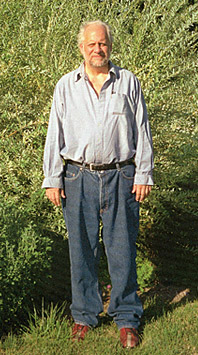Gone Missing
Three days with no water and electricity—odd how little it bothered me. In fact, it was both amusing and instructive. A psychosomatic spot quiz. The irritation lasted only a few minutes. My dad’s motto, “Expect the worst, and when the good comes, it feels better”, has become meaningful with age. However, I experience a profound sense of detachment at both ends.
Of course, the dogs and cats noticed nothing, which dawned on me the second day. Duh. We live on a farm, so the buildings and people matter little to them. The bugs took closer notice.
Wool became essential. All other fabrics are useless against the chill. Cotton especially betrays its tropical roots. After all, it is a luxury—the crushed pineapple of clothing. Wool is like acorn squash. A friend from Northern Wisconsin phoned, and he agreed that synthetics are worthless. His wife works for Land’s End, so he gets lots of samples. I wore a wool watch cap day and night, and a wool sweater most of the time.
Weirdly, the house was less drafty at night than when the heat was on. My Wisconsin friend said convection currents are stirred up by temperature change. The rare, quiet stillness throughout the house blended with the even temperature. It was like being in another world. The sense of solidity surprised me.
Eating so little, I haven’t much food to rot. All the fruits and veggies are in natural storage. The only things I missed, if at all, were a couple ball games on television, and reading myself to sleep. The moon was spectacular, as was the glowing ribbon of asters in the Happiness Garden behind the house (Aster novi-belgii ‘Porzallan’ and Aster novae-angliae ‘Lachsglut’).
I missed boiling water. I pondered trying out an old barn stove in the seed house, but it hadn’t been used in years, so I went without coffee two days until I went into town. At the coffee shop, I avoided the regulars. I didn’t want to share familiar stories that end up seeming or sounding gloomy, because mine wasn’t. Returned with papers. The print media has become, generically and permanently, yesterday’s news—instant trash.
The eventual loneliness made me think of Herman Melville at his farm in the Berkshires 150 years ago. He struggled with a meager income, depending on wealthy relatives. His dispirited family worried about his mental health. It was in this rural farmhouse that, in 14 months, he wrote Moby Dick. Incredibly, it was a commercial failure. Much later, in a small New York City apartment, after spending each dreary day as a customs agent, the 70 year old wrote the mystical, globe-spanning epic poem, Clarel.
Melville’s father was a victim of manic-depression and alcoholism. His two sons were very troubled. Both died tragically: one of suicide at home, one later of an unknown illness in a boarding house in California. Melville always had Shakespeare as his touchstone and the Bible as his foundation. His greatness is beyond belief.
He died penniless and forgotten to the world that celebrated him so highly for his travel books 40 years earlier. The obituary listed him as “Henry Melville”.
I thought of the theological nature of fatherhood.
I finally called the electric company on the morning of Sunday’s “big game”. Understandably, it took them until nightfall.
Shakespeare’s Richard II was my introduction to The Great Bard. The perfection of his dramas is blinding. I used to read him with a hand shading my eyes. Too exciting to merely read, Shakespeare is the summit of theater. In contrast, the Bible took me into an outlandish world and made me at home there, walking through dusty villages, rocky deserts, beckoning palms and welcoming olives. I soldier on, the same as any peasant or town dwelling writer or reader has done before me, depressed or not, artificially or naturally lit, for the last five hundred years.
Eventually the dream of the books vanished, and I slipped back in the darkening and powerless day, the township trucks came to fix the line, and I found myself under an ugly yellow light. Until Brett Favre unleashed a Jim McMahon pass that feathered into the receiver’s hands, and all was back to cotton.
Finally, the main house at Fordhook Farm has a great formal piazza, almost as comfortable as Melville’s in his beautiful short story, The Piazza, which mysteriously points out the direction of his entire literary output. We shall announce our Open House dates soon. Fordhook Farm is an incredible location. We’ll leave the lights on for you.
